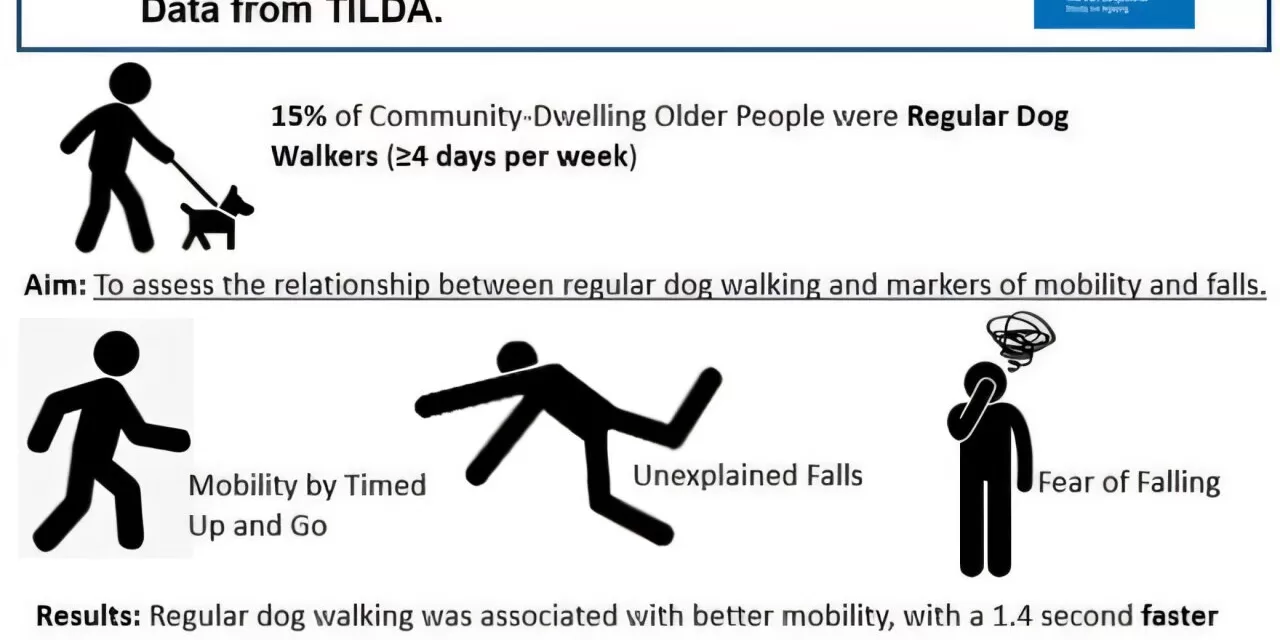A new study published in the Journals of Gerontology has found that regular dog walking can significantly improve mobility and reduce falls in older adults. The study, conducted by researchers at Trinity College Dublin, is the first to look at the link between dog walking and these health outcomes in a large cohort of community-dwelling older people.
“Falls are the most frequent reason older people are admitted to hospital and the most common cause of accidental death in later life,” said Dr. Eleanor Gallagher, lead author of the study. “This study highlights the value of regular dog walking as a simple and accessible activity that not only improves physical health but also has benefits for mental well-being and confidence among older adults.”
The study analyzed data from over 4,100 participants aged 60 and older. Researchers found that regular dog walkers were 40% less likely to experience unexplained falls and completed a timed walking test significantly faster than non-dog walkers. Dog walkers were also 20% less likely to report fear of falling, a known factor in mobility avoidance and diminished quality of life.
“This study demonstrates the potential benefits that regular dog walking can confer on older people,” said Professor Robert Briggs, co-author of the study. “Regular dog walkers had significantly better mobility, reduced likelihood of falls and were less likely to develop fear of falling.”
The researchers believe that the benefits of dog walking go beyond just physical activity. Dog walking also provides social interaction, companionship, and purpose, all of which are important for maintaining independence in later life.
“While this may be partly due to increased physical activity, it is also likely that increased social interaction, companionship and purpose derived from having a dog also plays an important role,” said Professor Briggs.
The study’s findings suggest that regular dog walking can be a simple and effective way for older adults to improve their physical and mental health. More research is needed to confirm these findings, but the study suggests that dog walking could be a valuable tool for promoting healthy aging.












